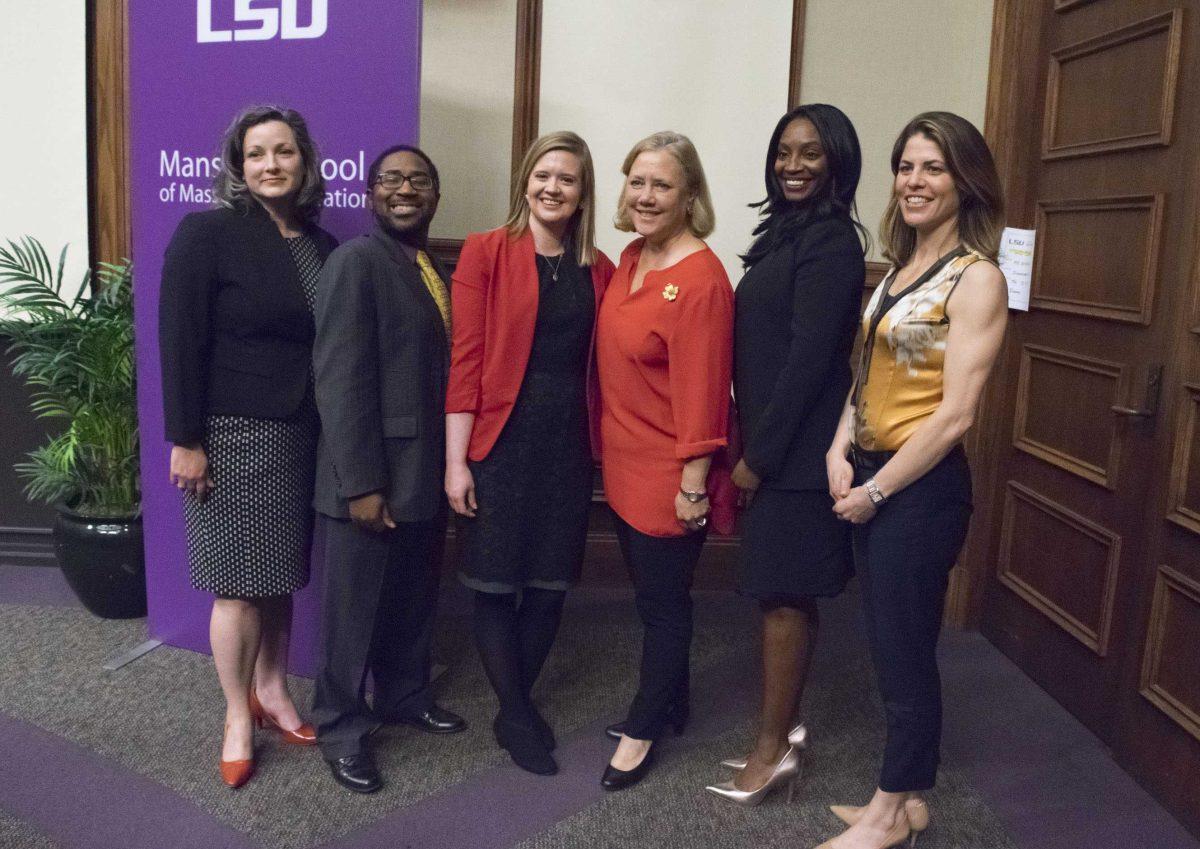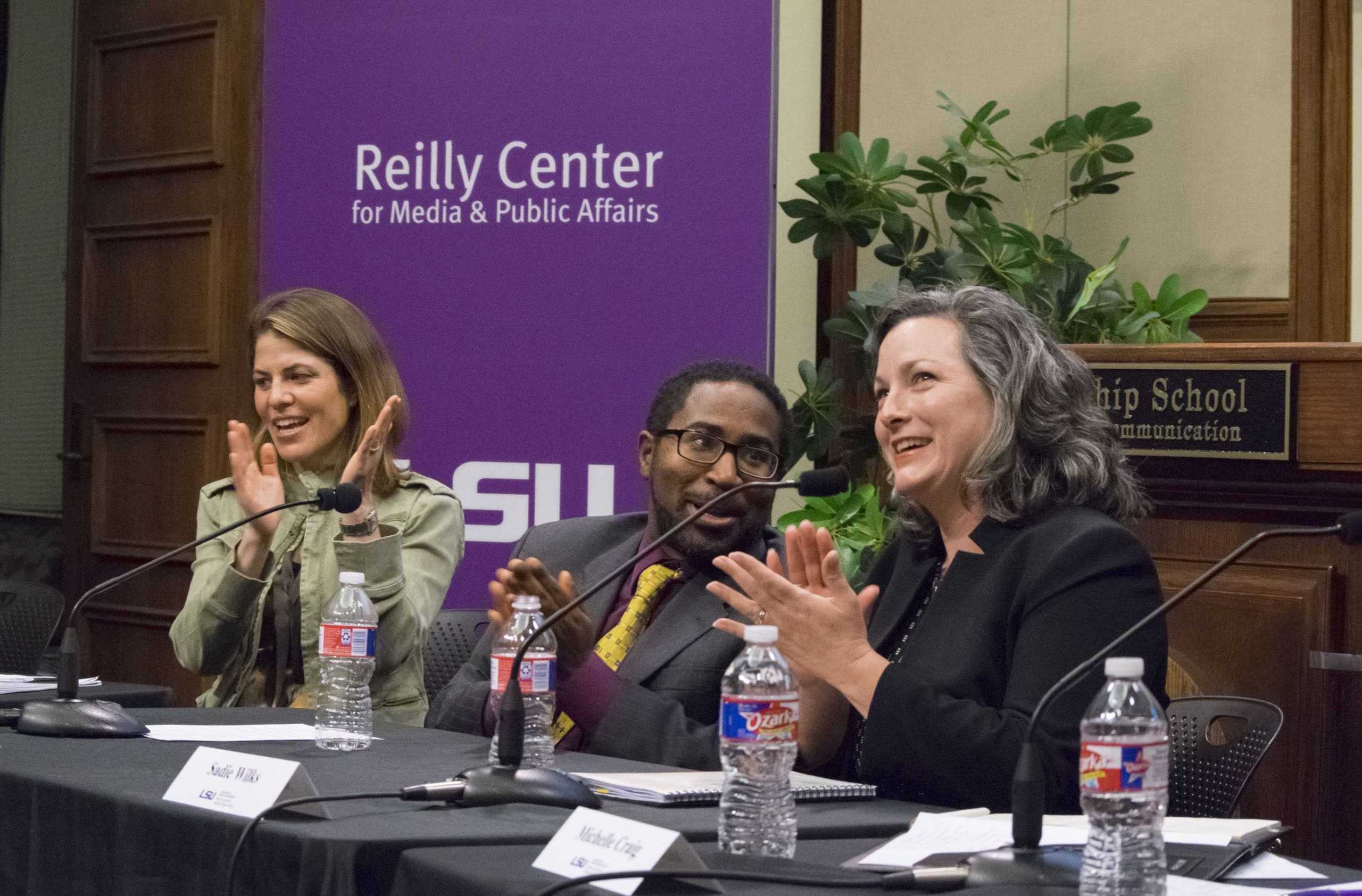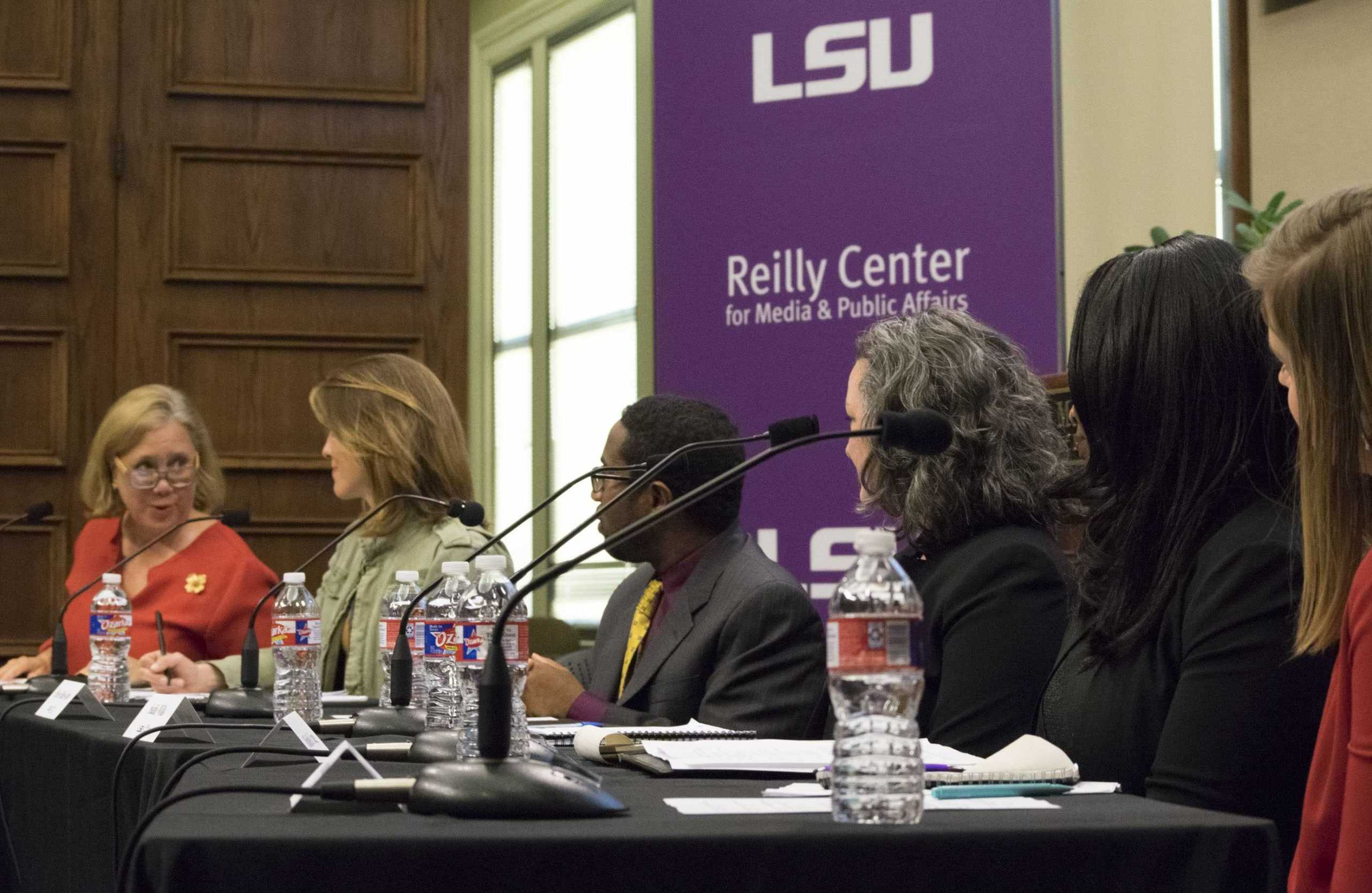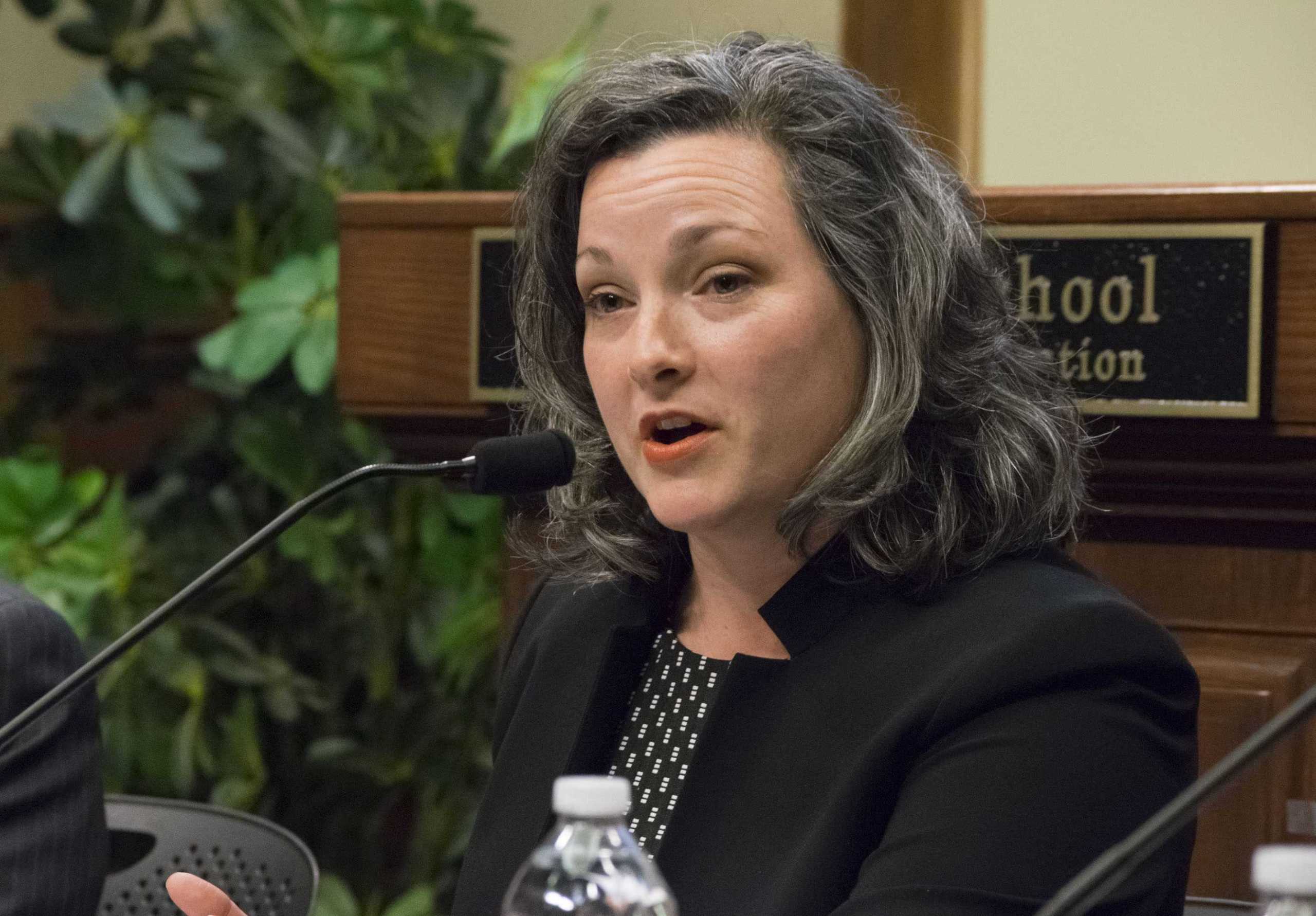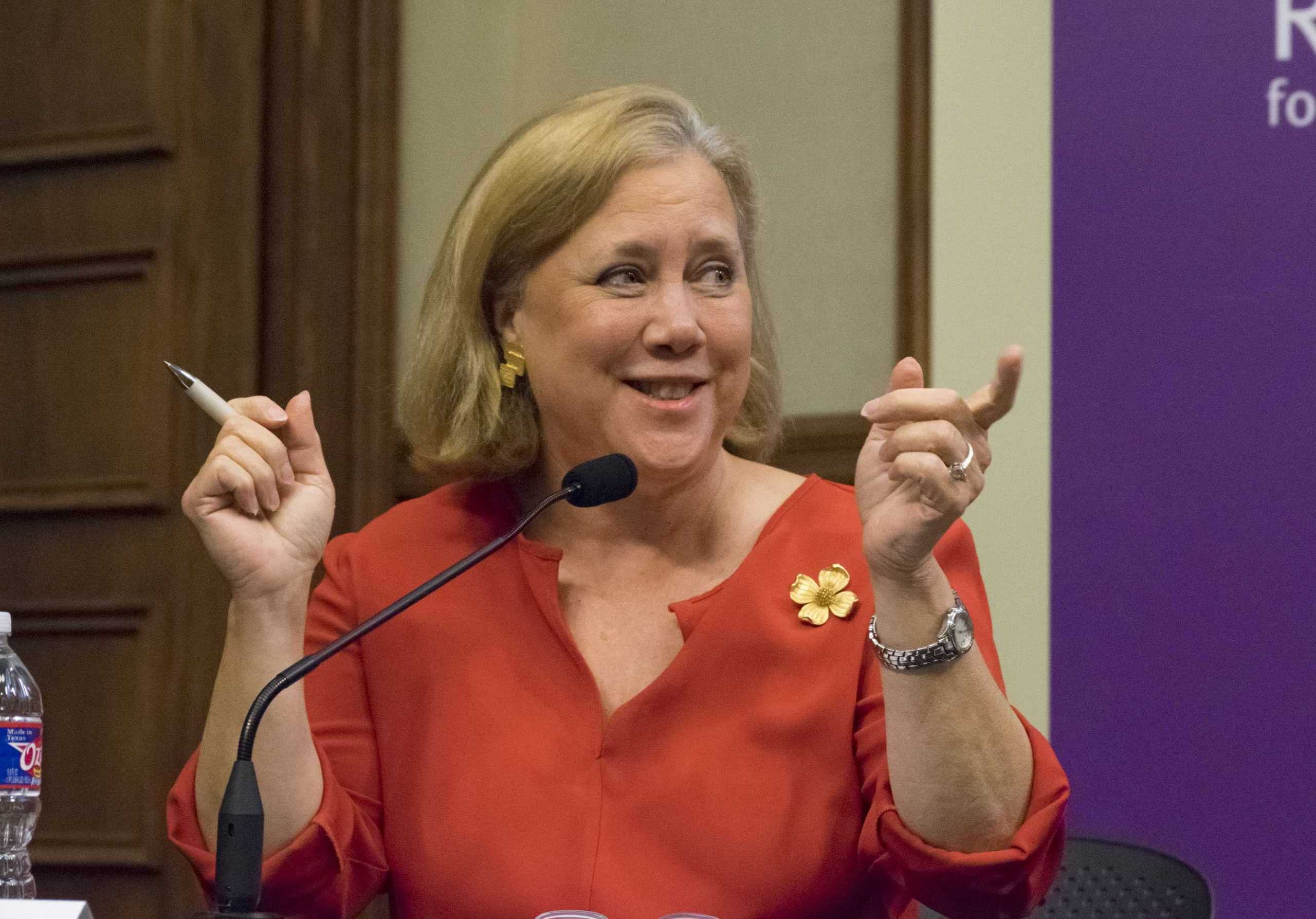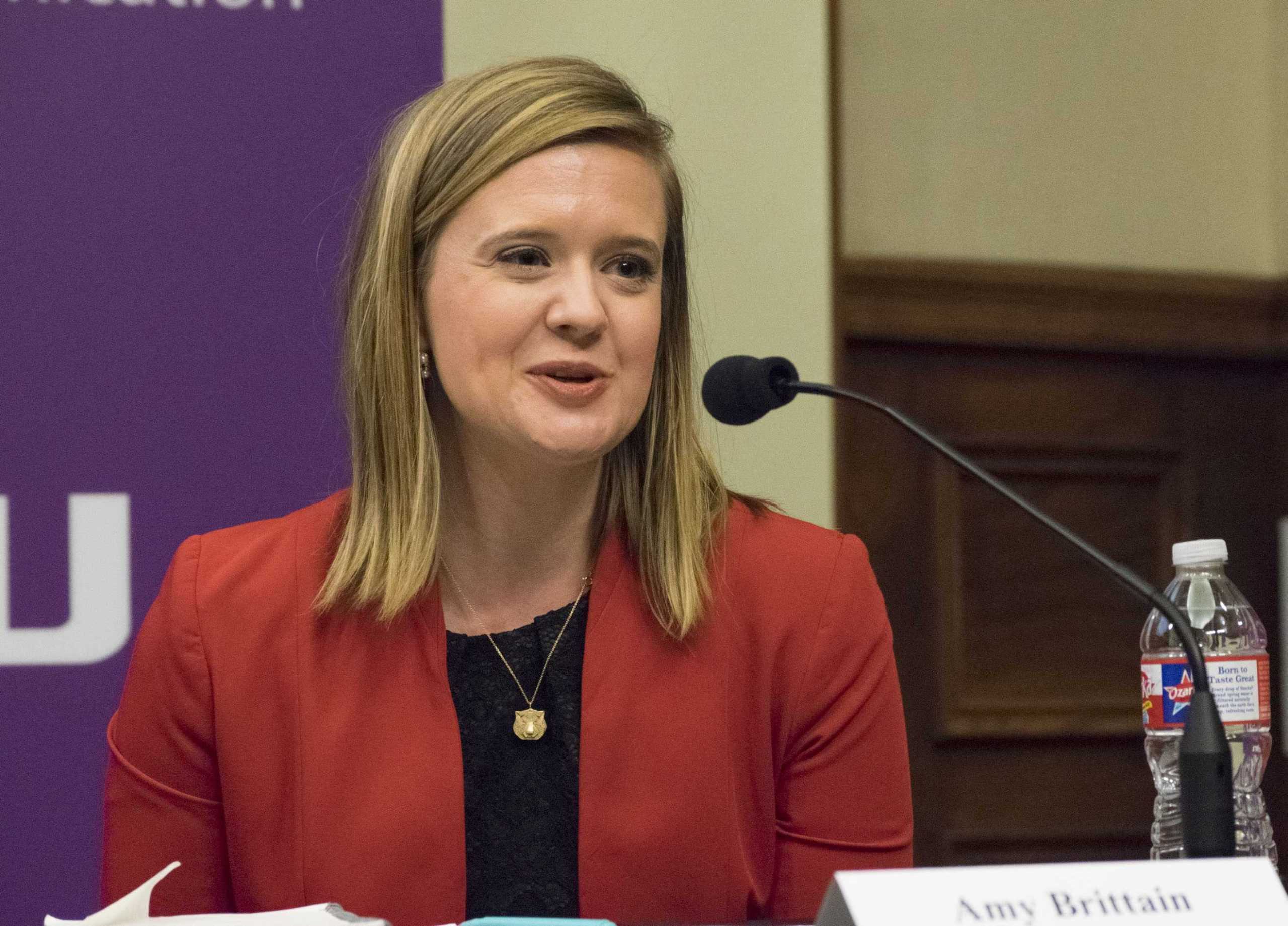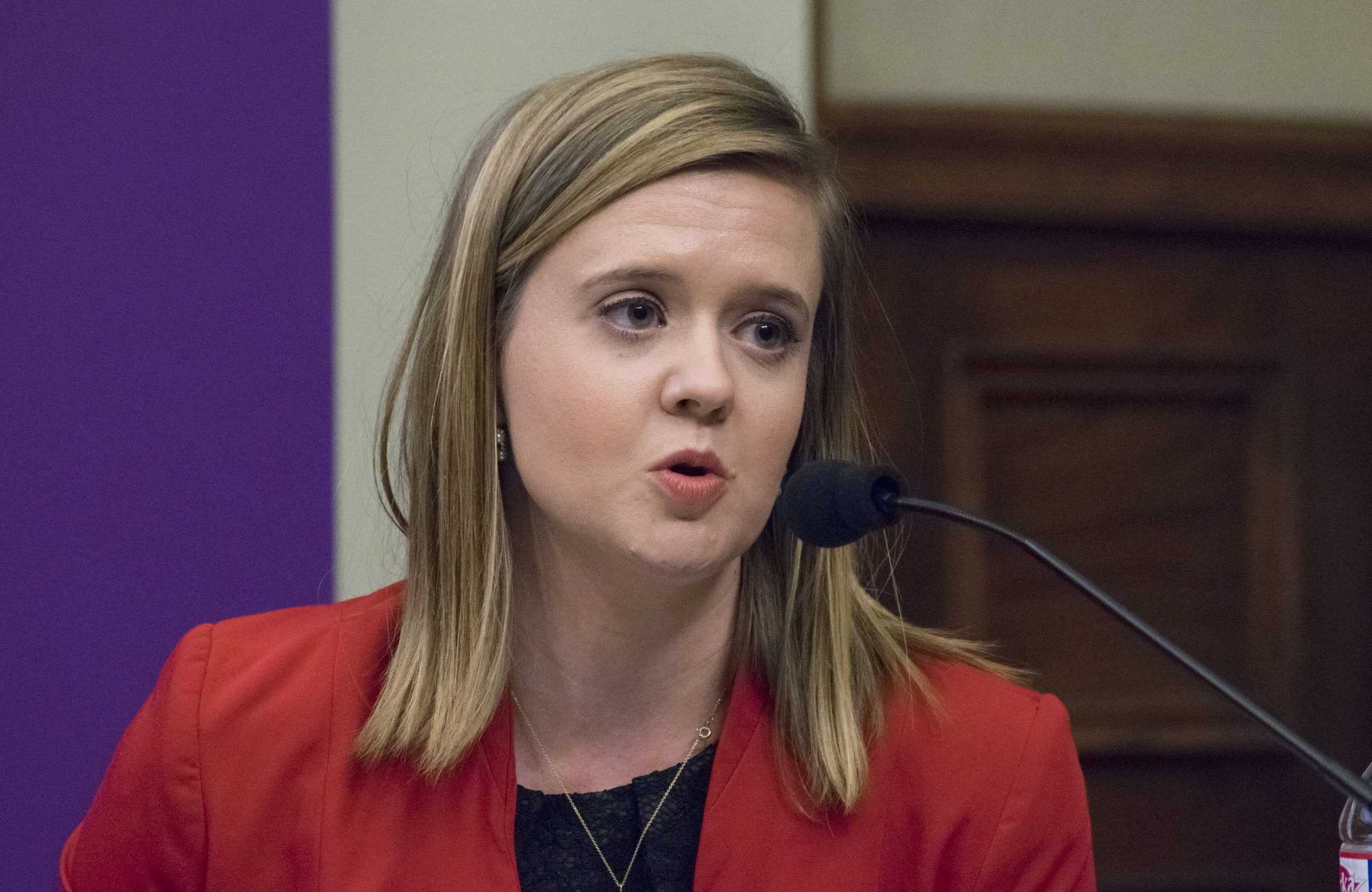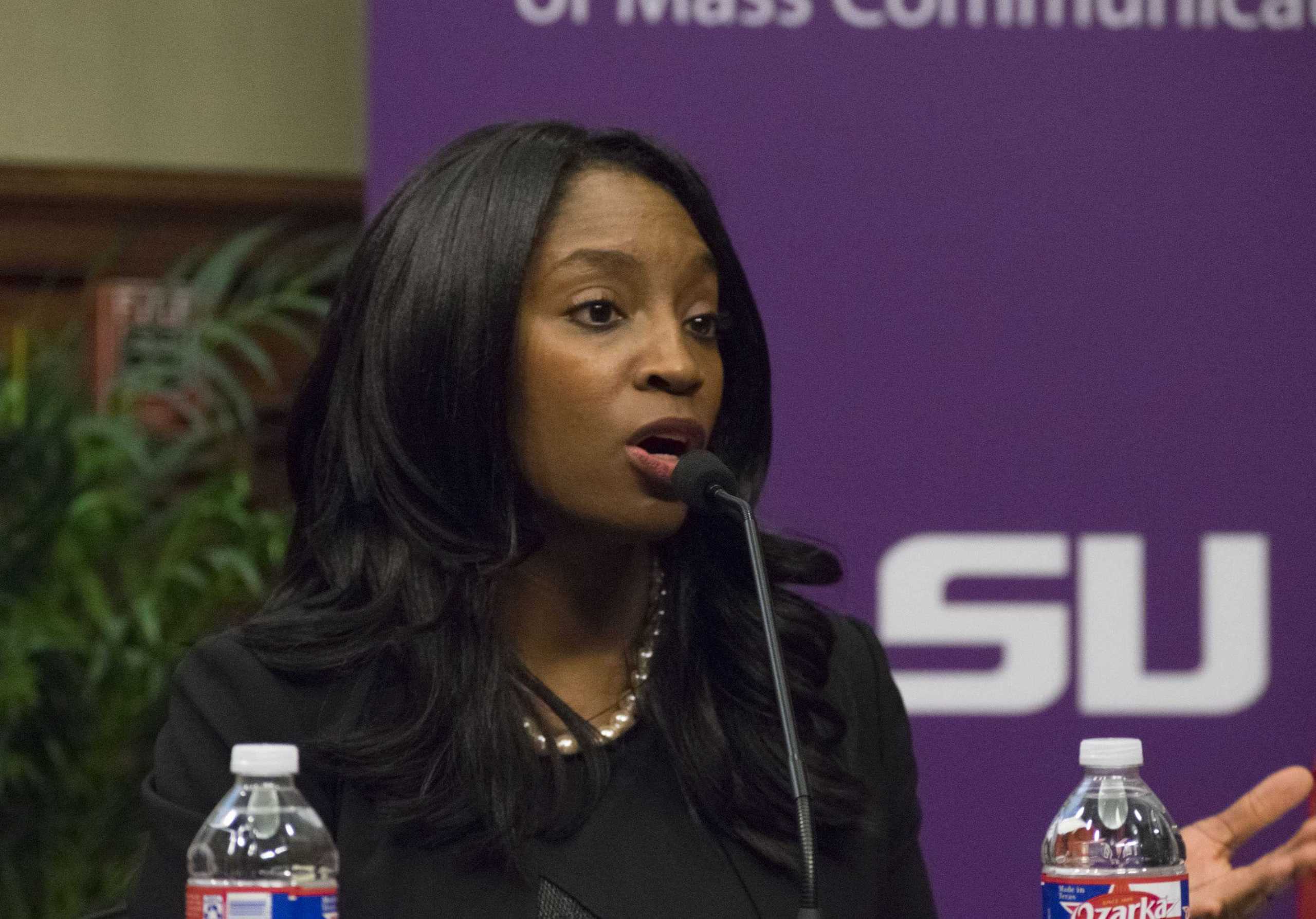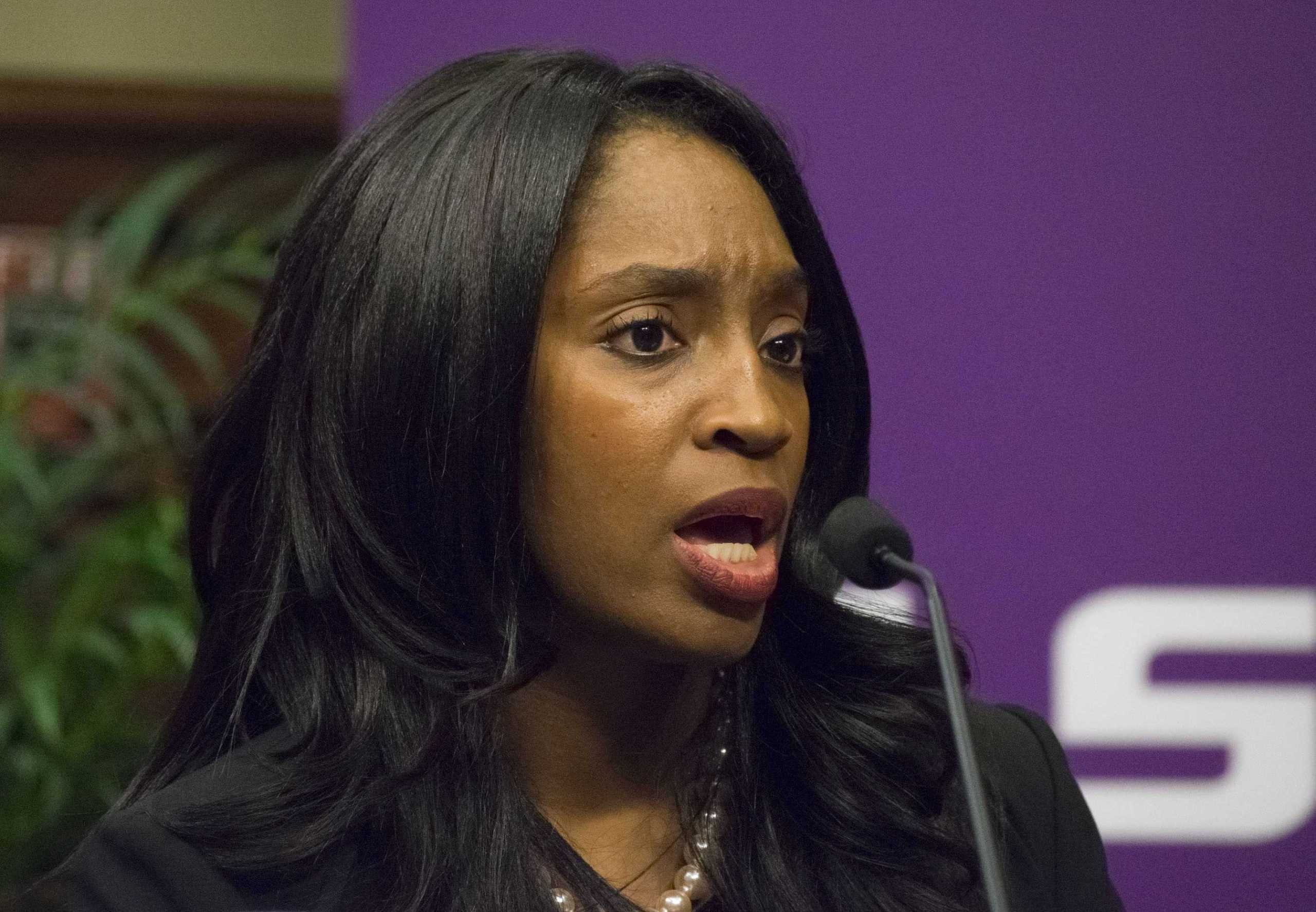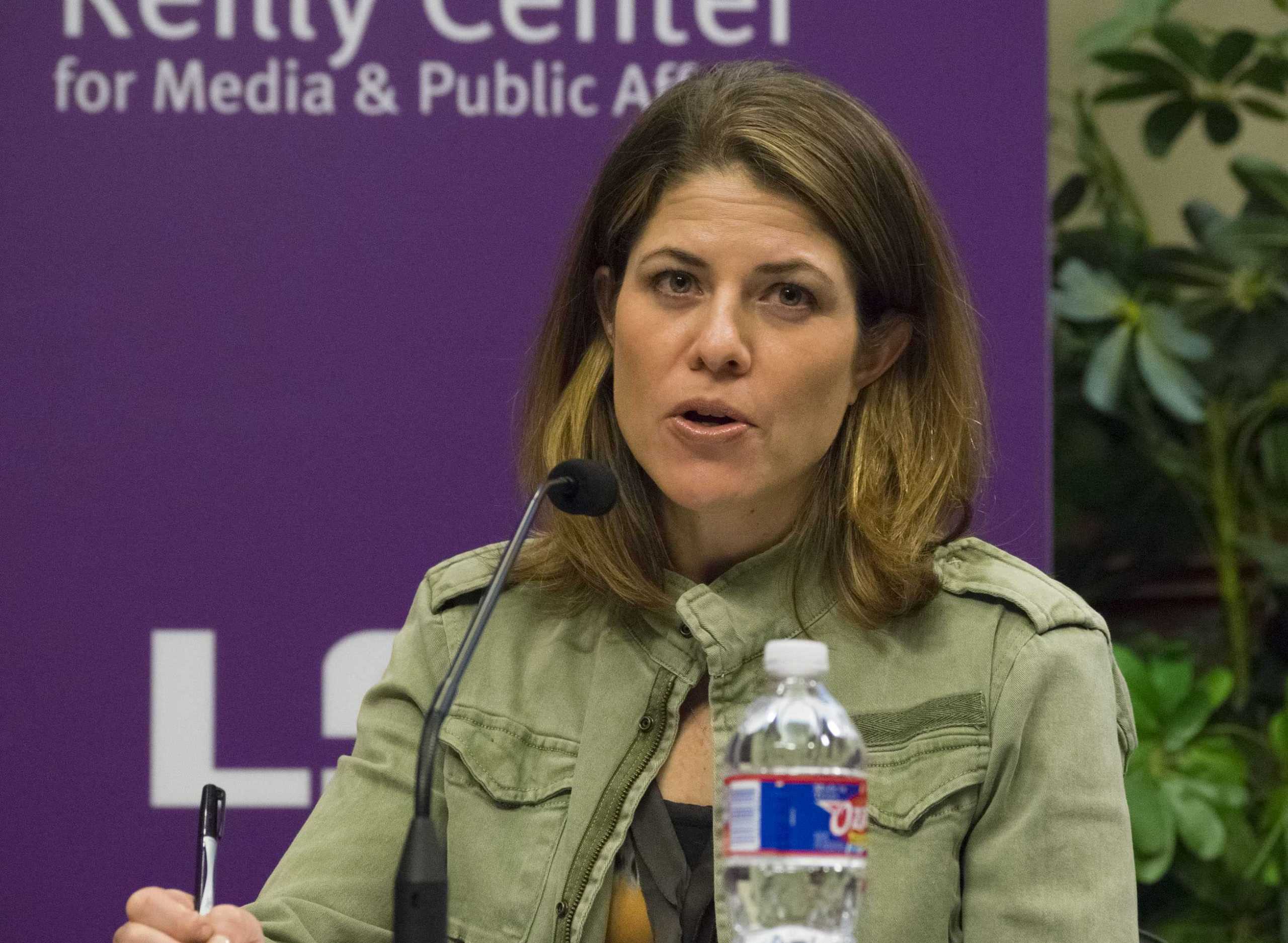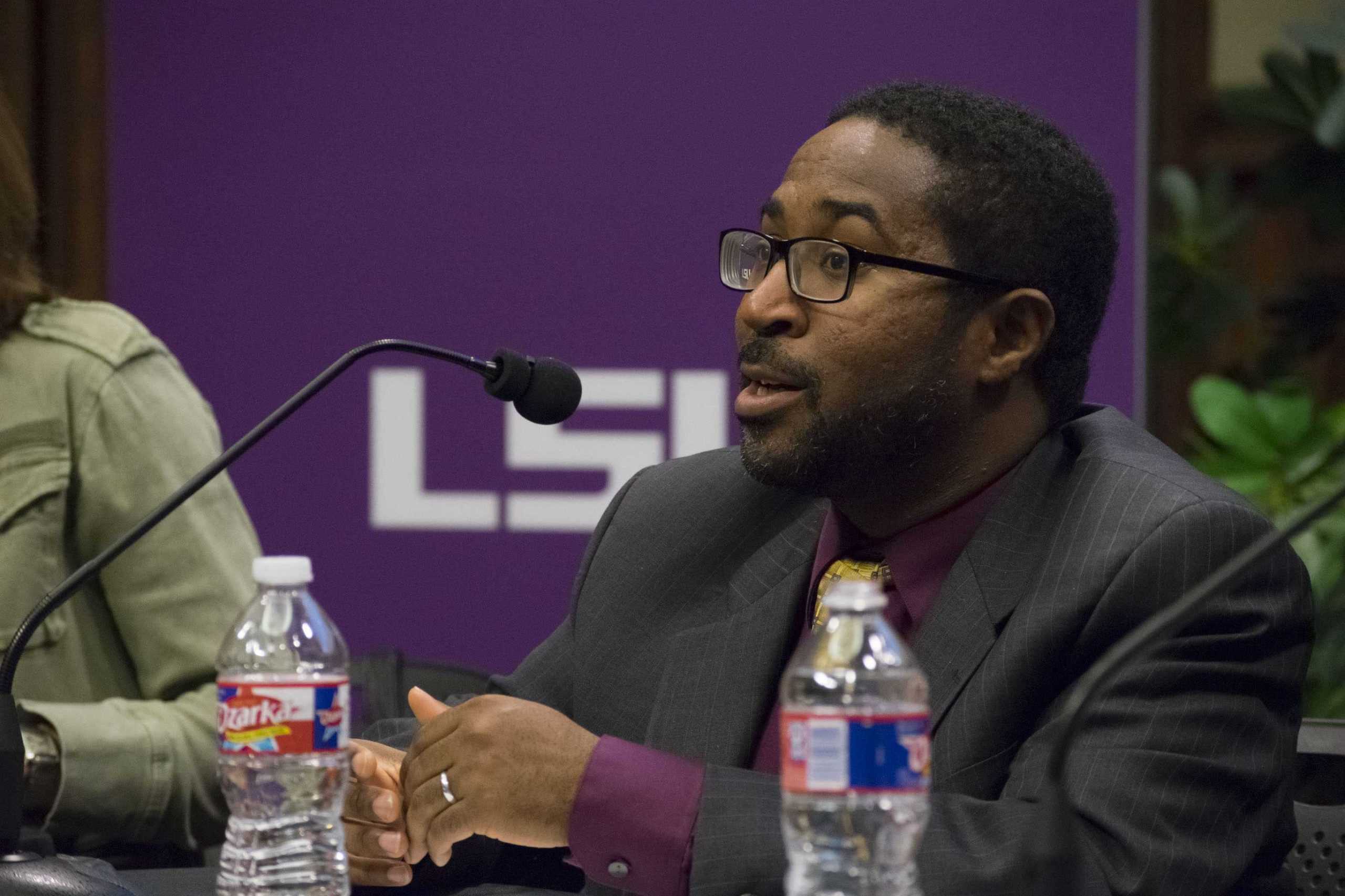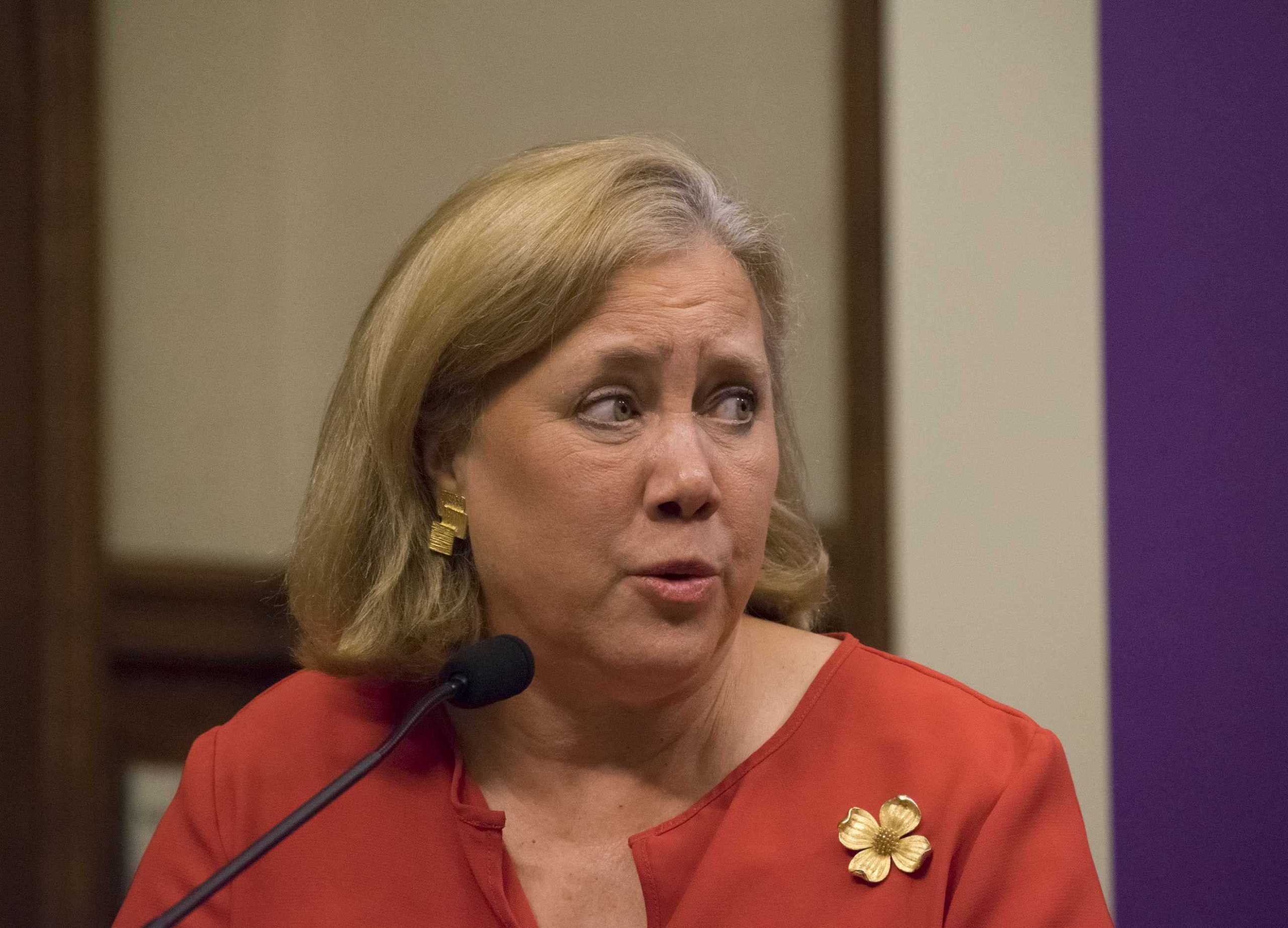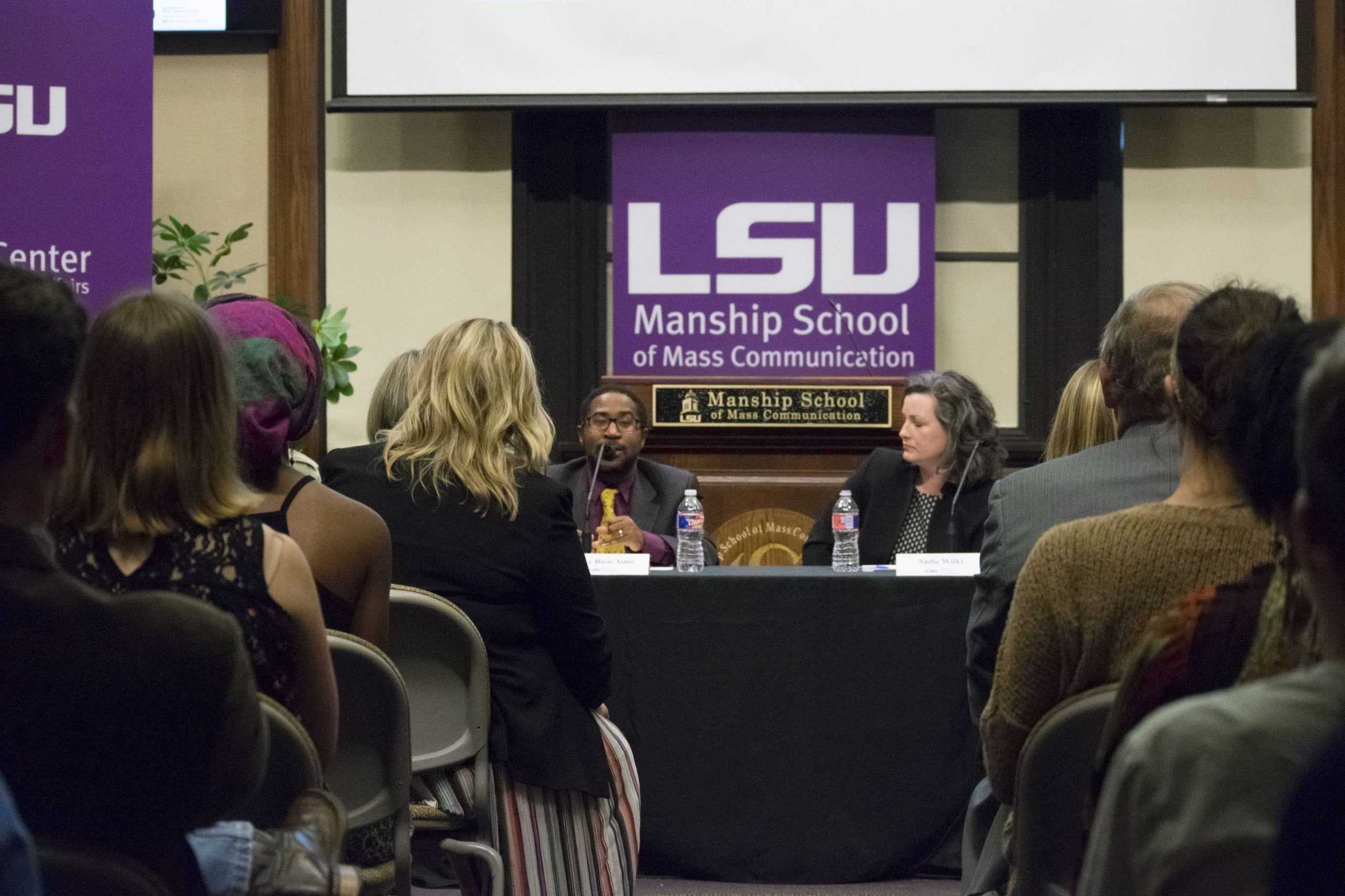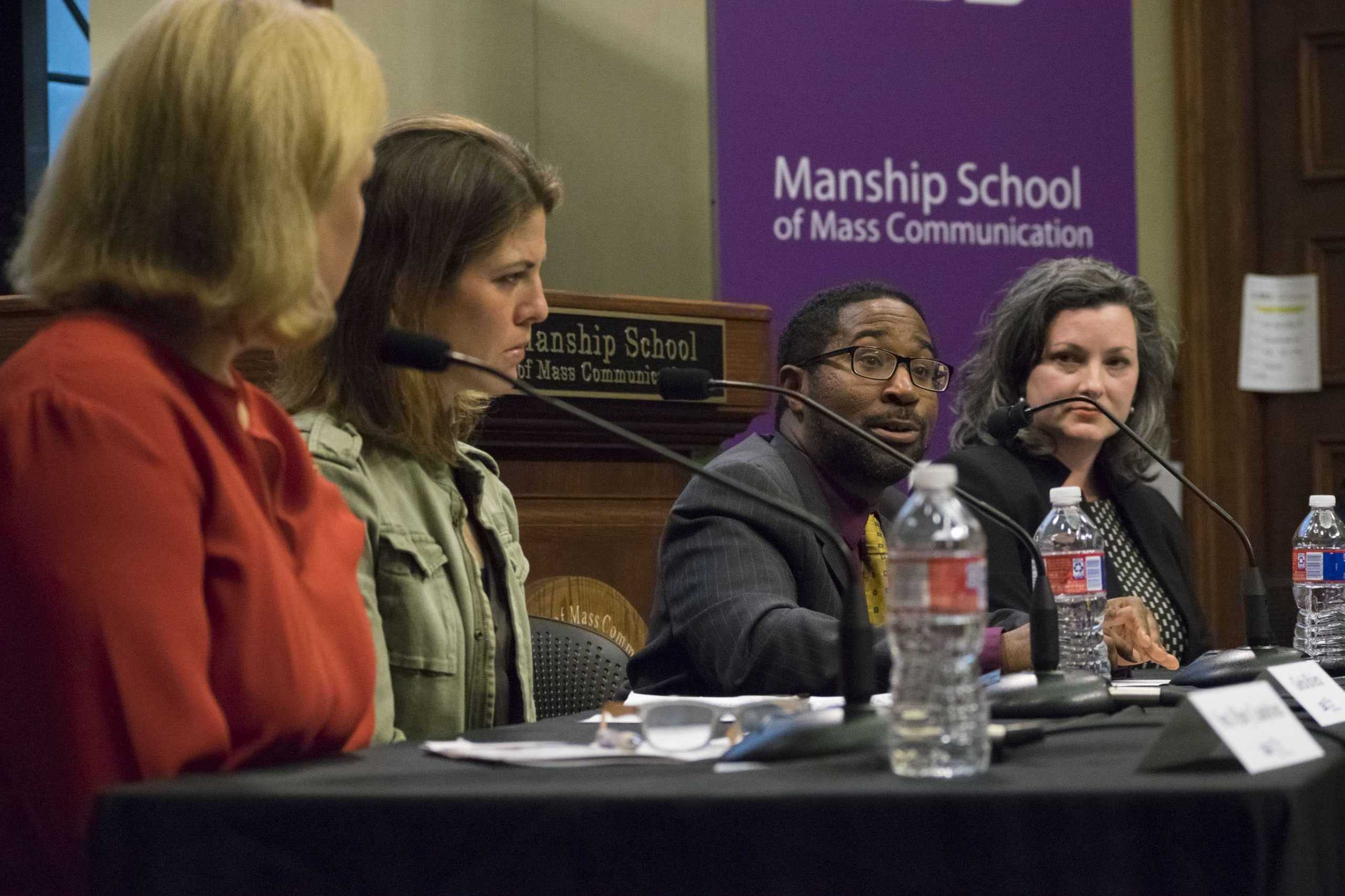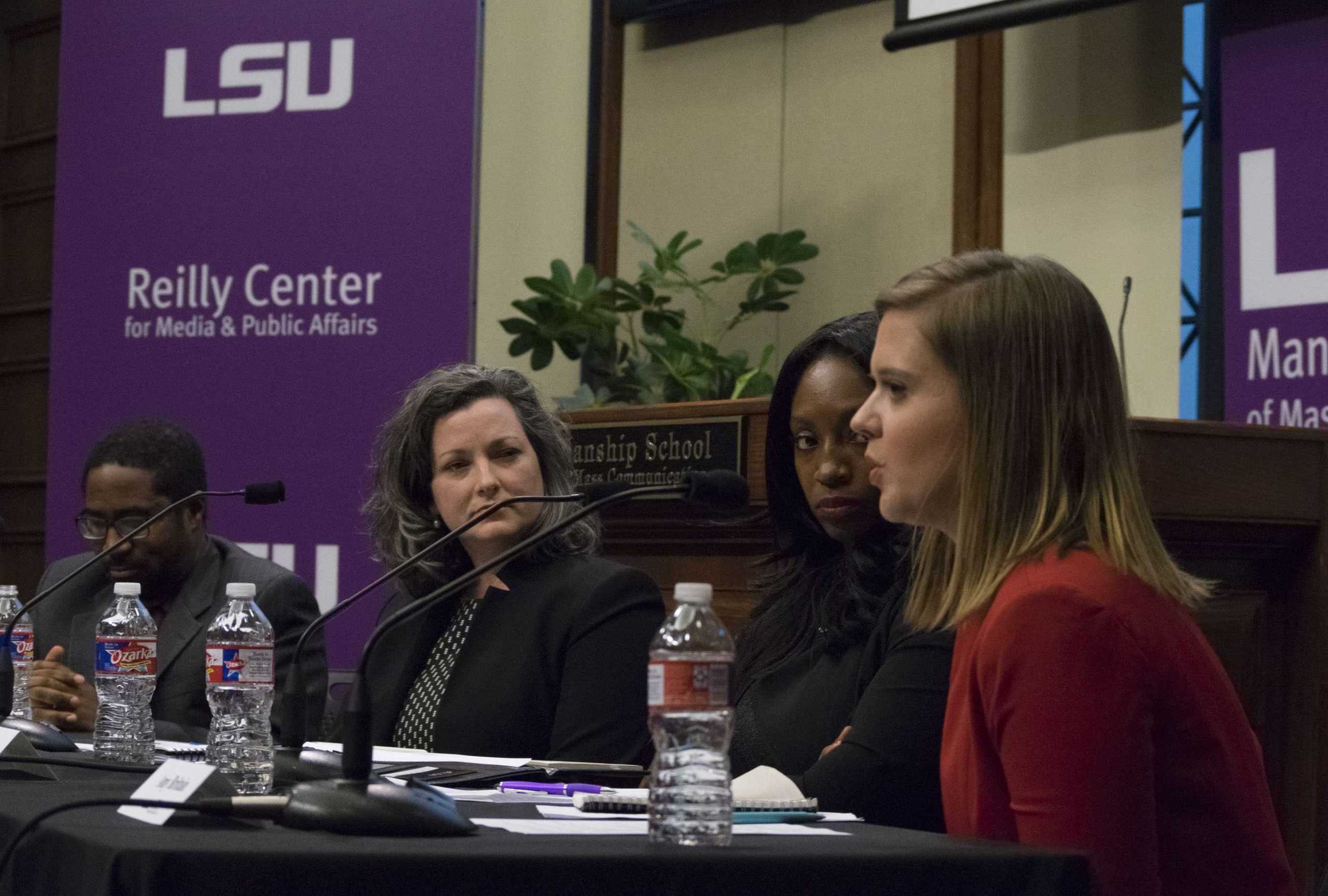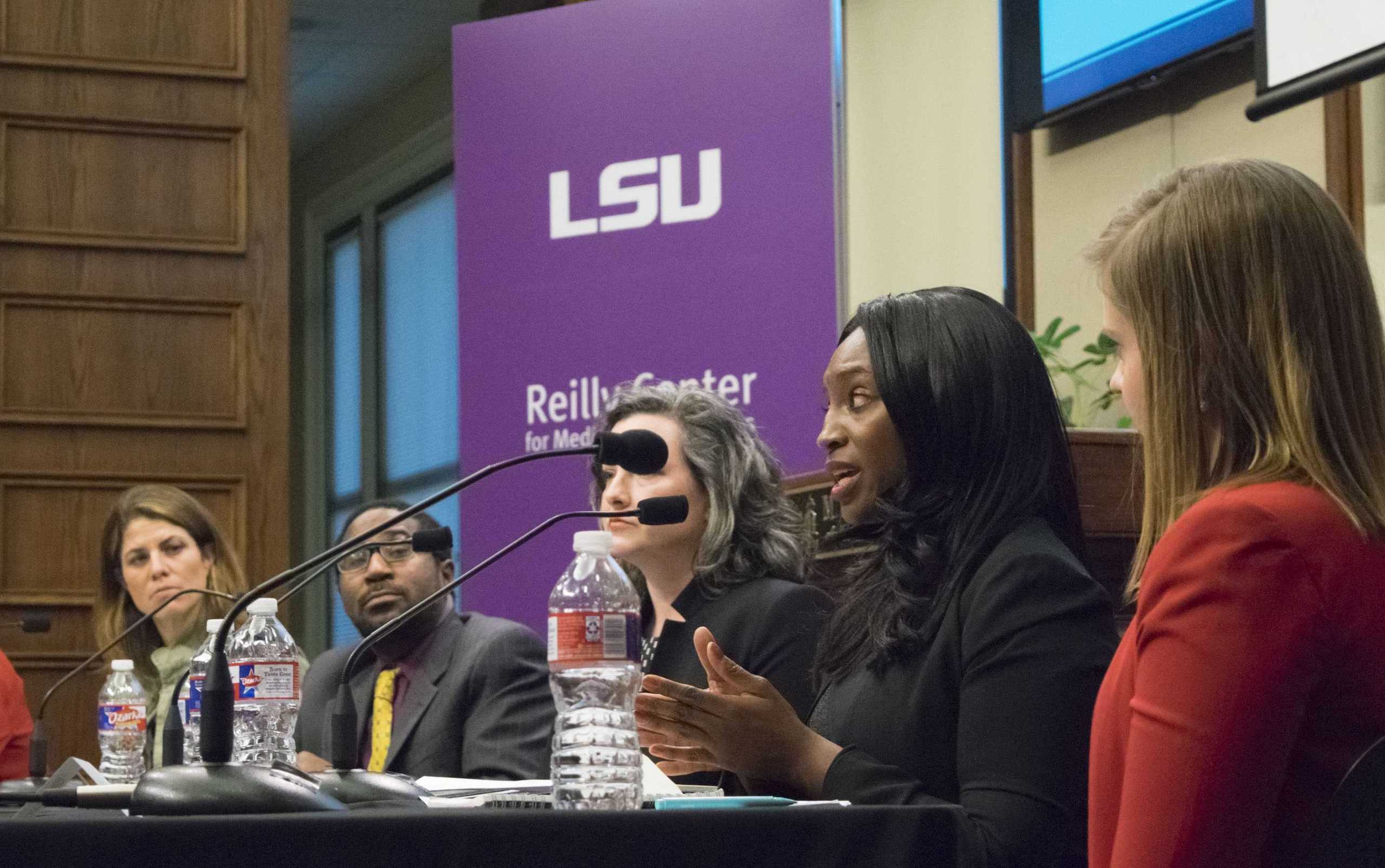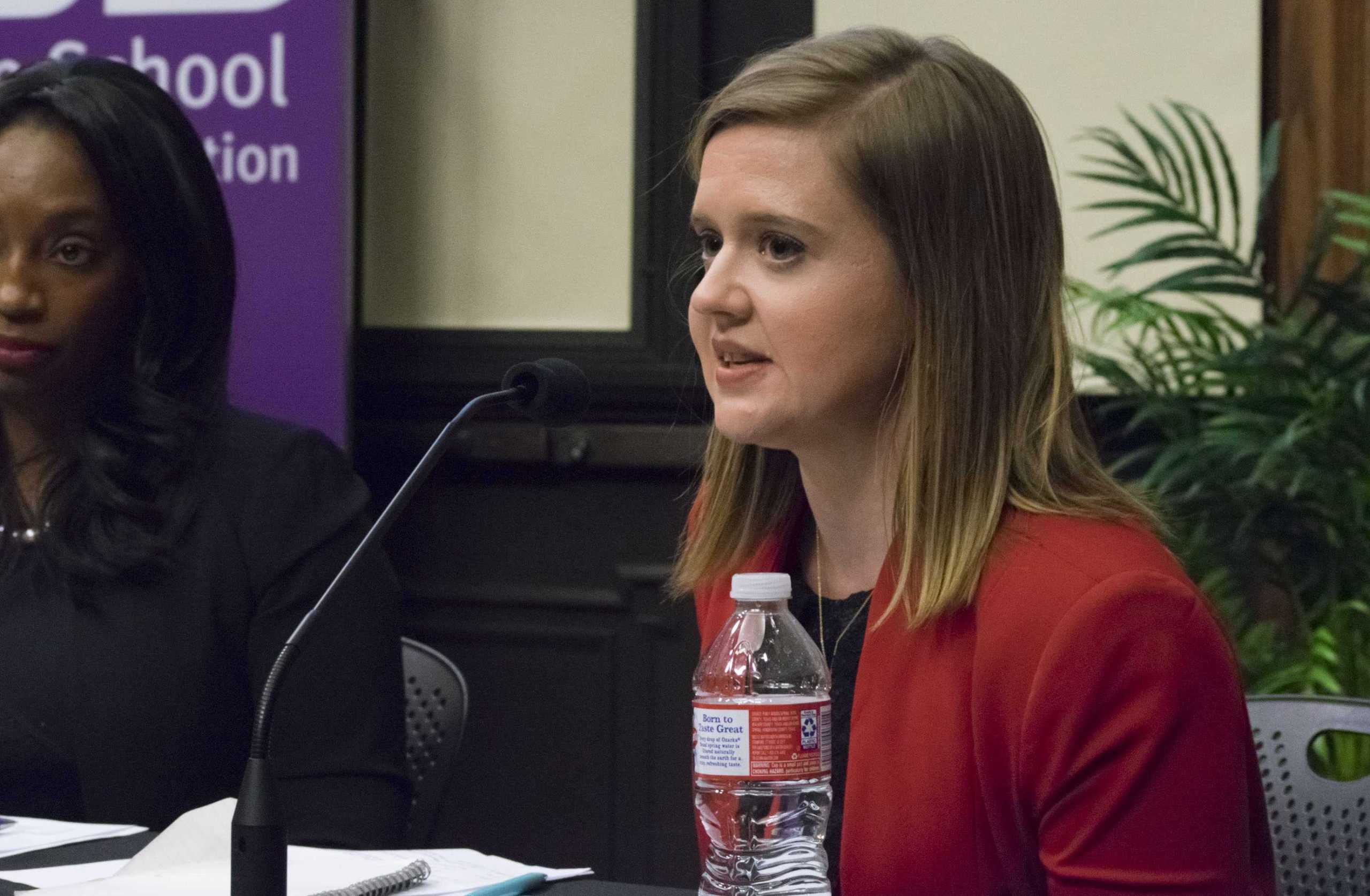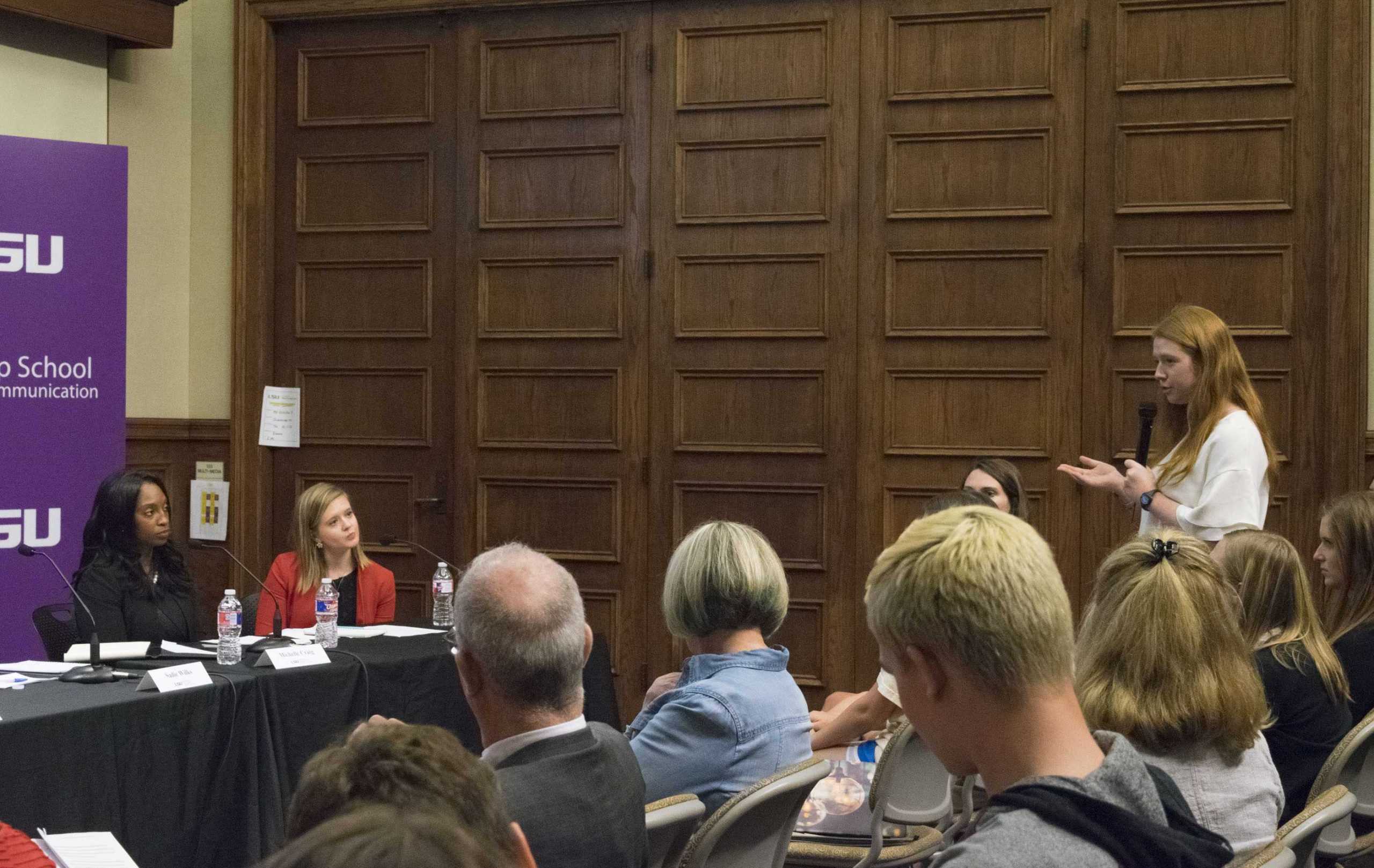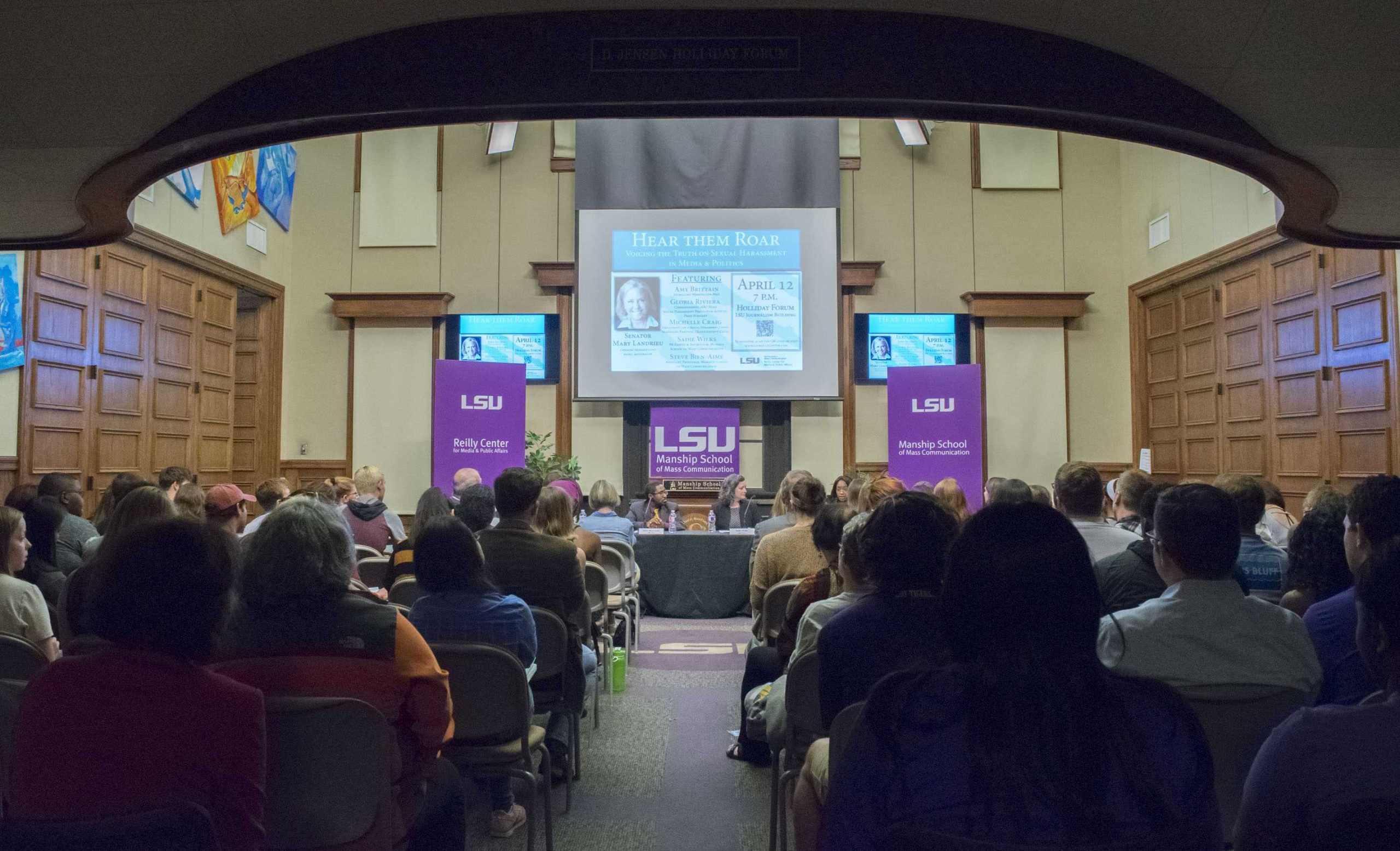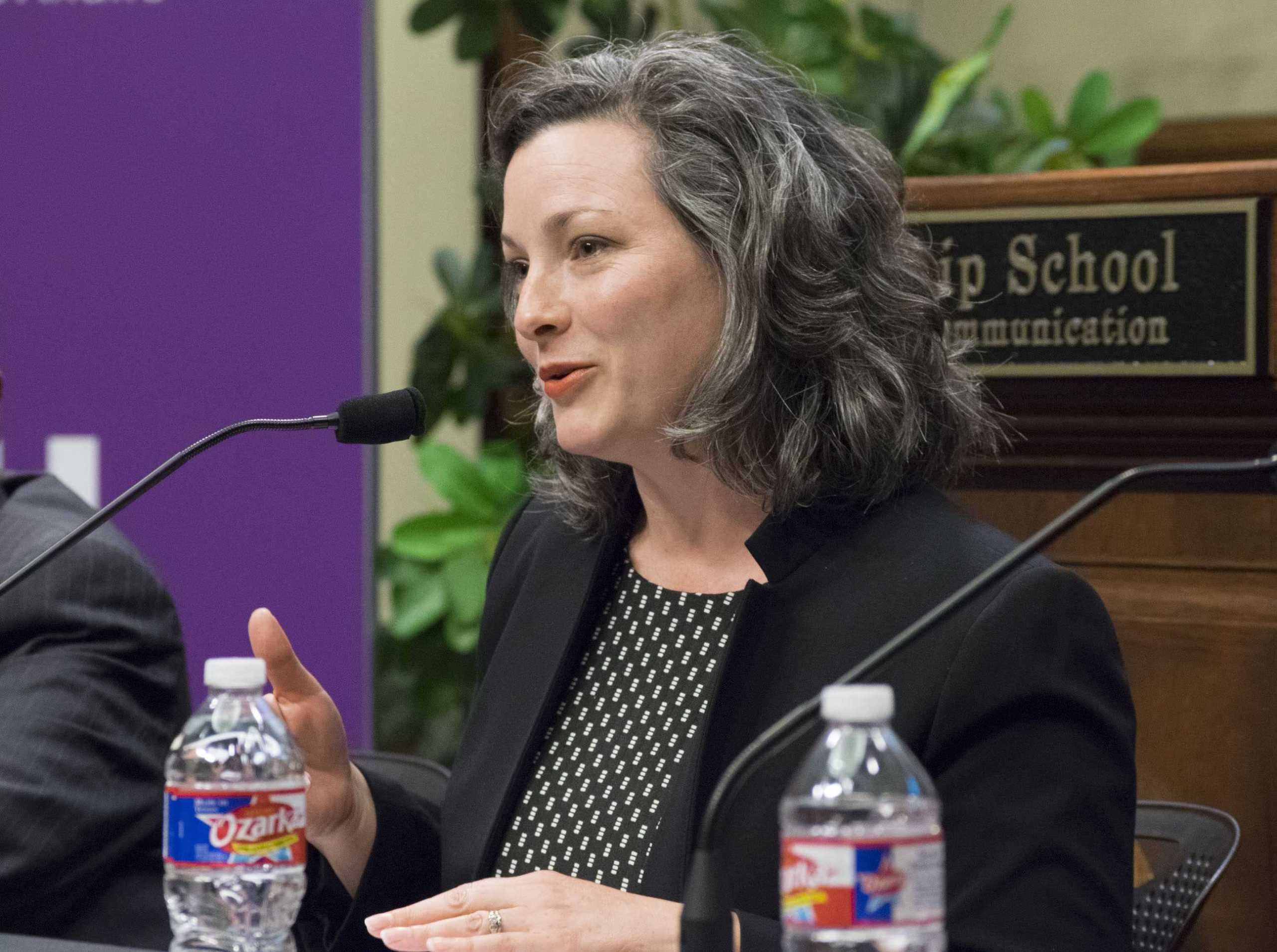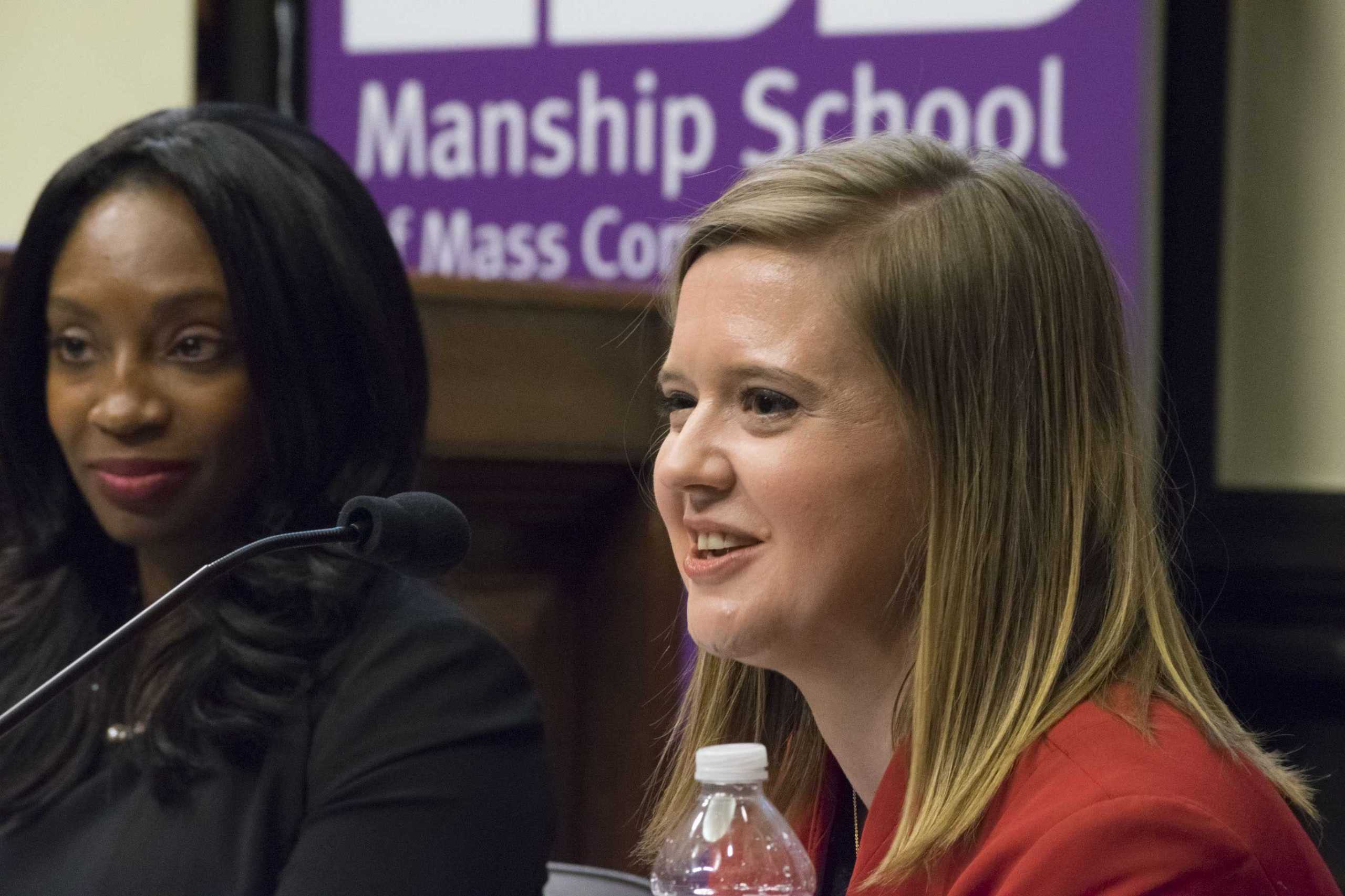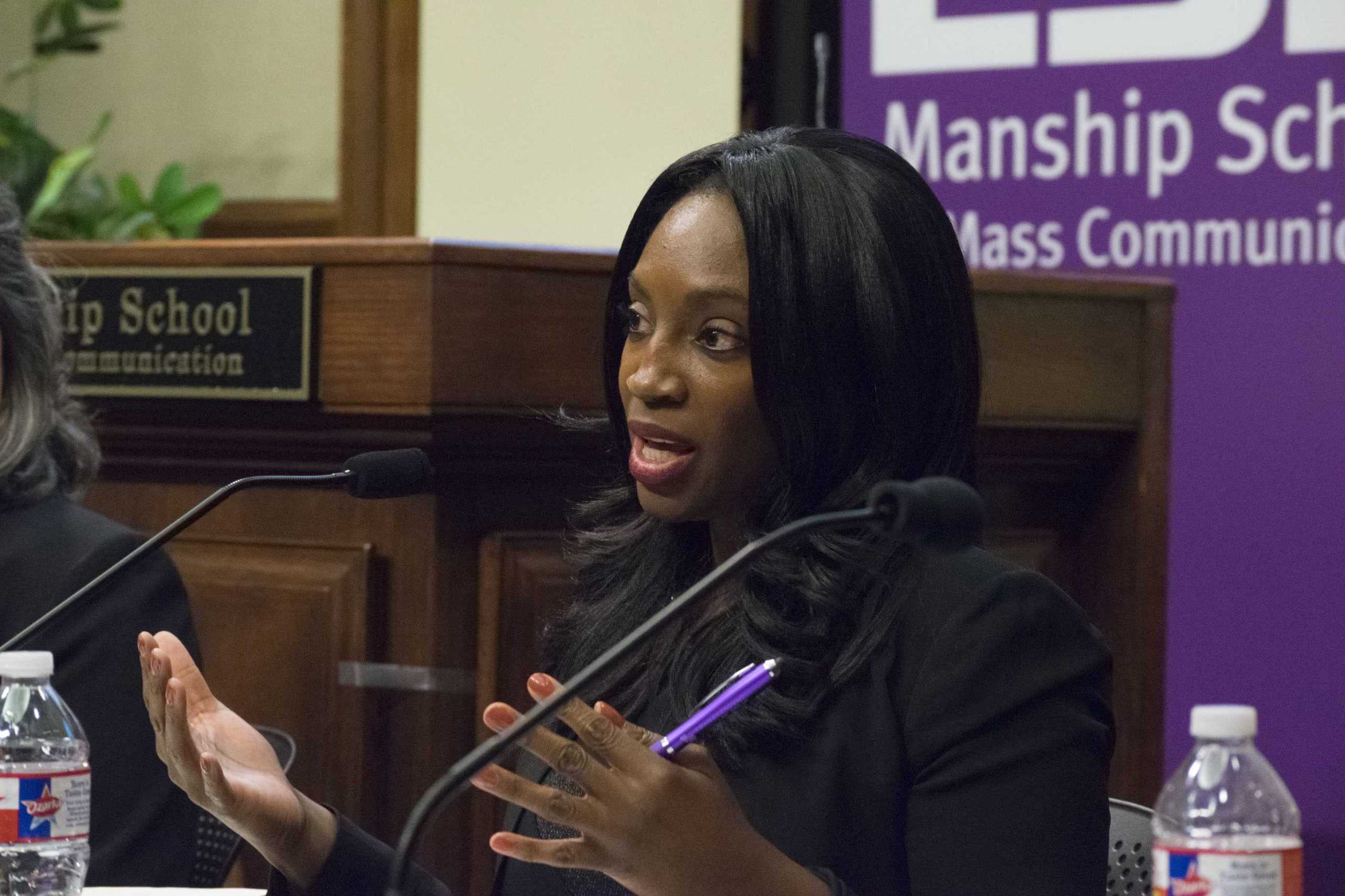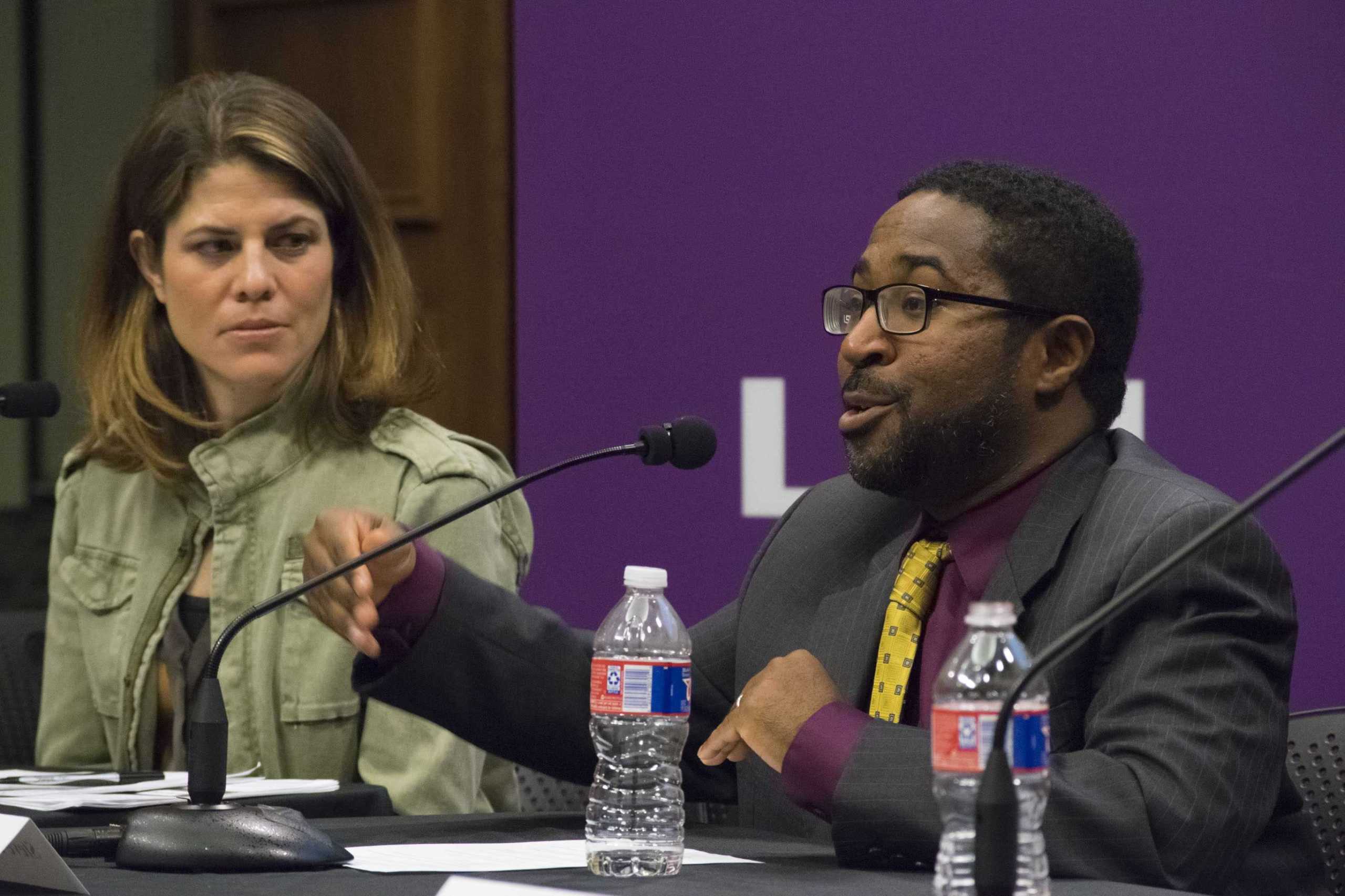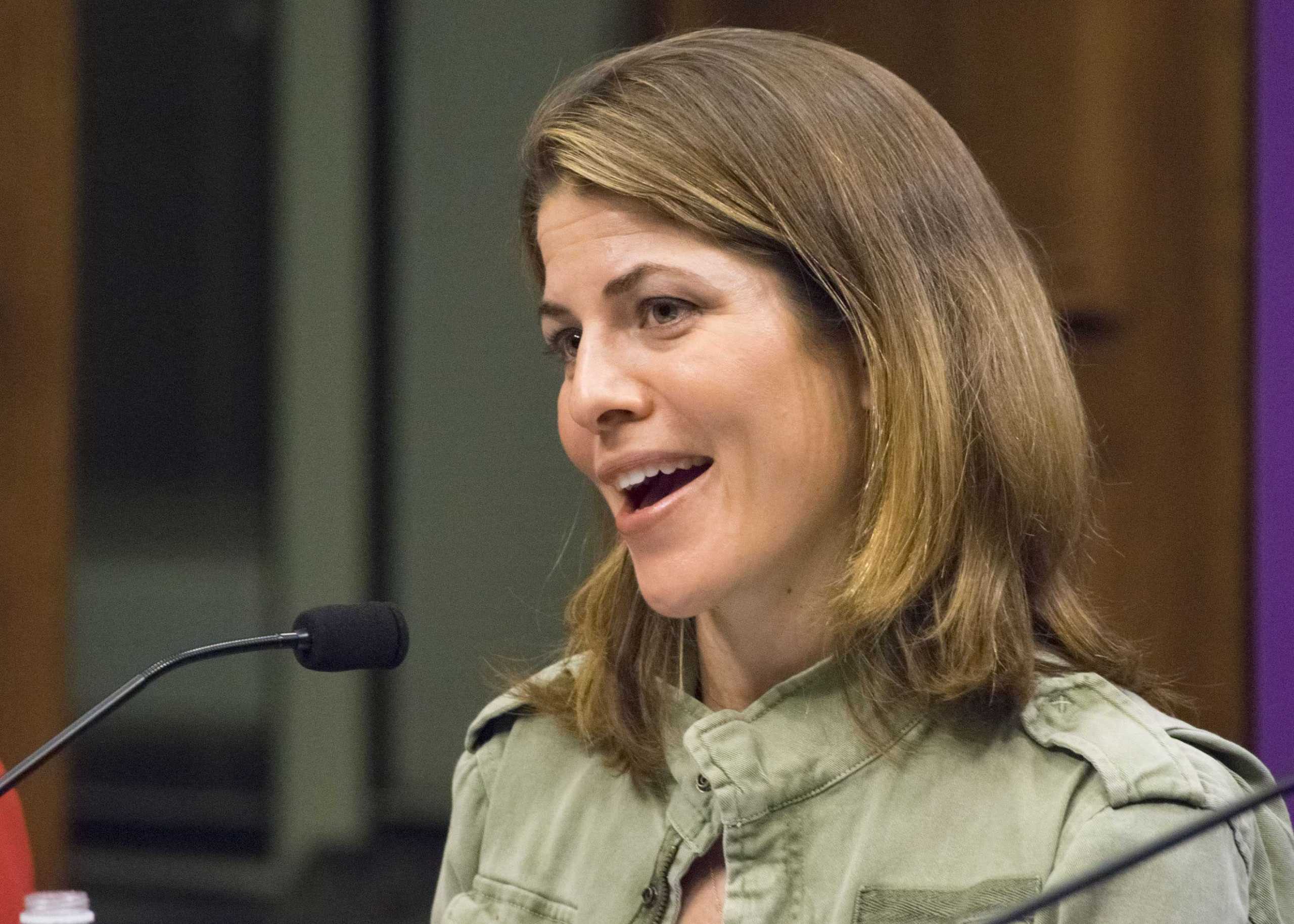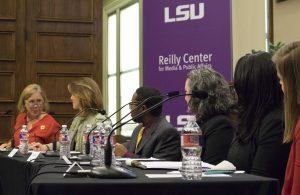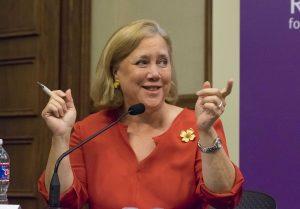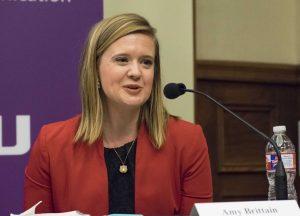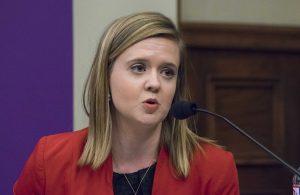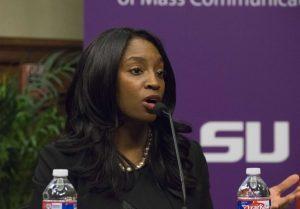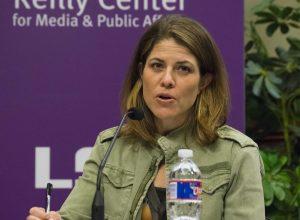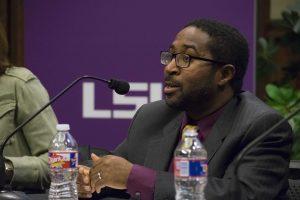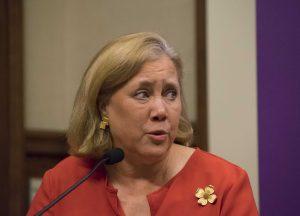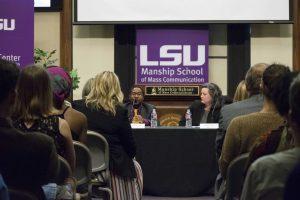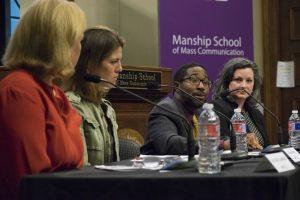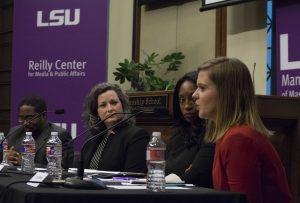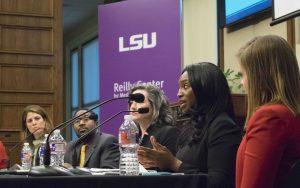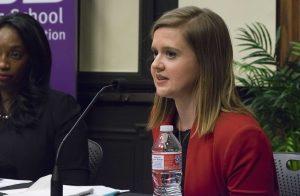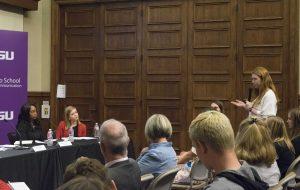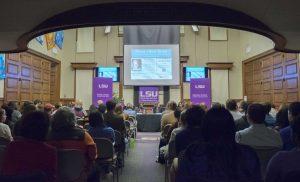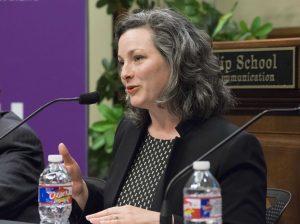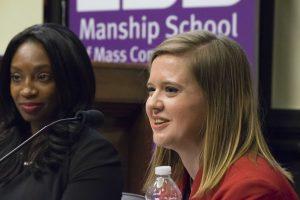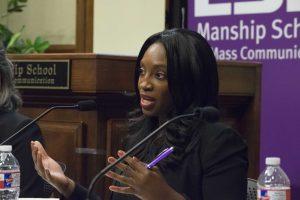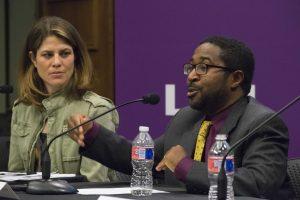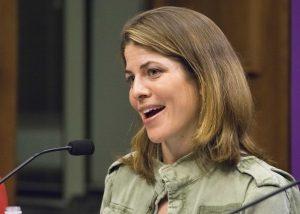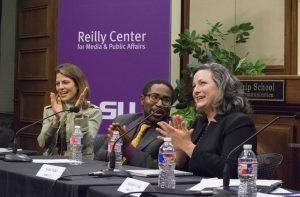Former Louisiana Sen. Mary Landrieu led a panel of media professionals discussing the role of the media industry in sexual harassment on Thursday.
The panel included Manship alumna and Washington Post investigative reporter Amy Brittain, ABC News Correspondent Gloria Riviera, employment law and sexual harassment expert at Transcendent Legal Michelle Craig, as well as two members of the Manship School of Mass Communication faculty.
The Manship School and the Reily Center for Media and Public Affairs hosted Hear them Roar: Voicing the Truth on Sexual Harassment in Media and Politics on April 12 in the Holliday Forum.
Landrieu opened by posing a question to the panel about what in recent years has propelled the issue of sexual harassment to the forefront of national conversations.
Public relations expert and Manship faculty member Sadie Wilks said she thinks the #MeToo and the #TimesUp movements were big contributors to the widespread publicity of the issue. She said through these movements, more women are empowered to share their experiences and feel this will result in action.
Craig spoke about the importance of being an ally for those experiencing sexual harassment in their workplace. She said women should trust their instincts and identify colleagues or others who will help them.
“You know what is right and what is not right,” Craig said. “Find your allies and let them know what’s going on because you don’t have to suffer in silence.”
Manship professor Steve Bien-Aime said he thinks society is moving in the right direction, in part due to the increase of women in higher education and previously male-dominated professions. However, Bien-Aime said the issue of sexual harassment prevails, because the power structure remains tilted toward men.
“Diversity is good, but then we have to also look at the entanglements of power,” Bien-Aime said. “Diversity has to be a holistic thing.”
Brittain addressed the standard required when reporting on stories about sexual harassment and misconduct. Brittain assisted in breaking the news that CBS This Morning host Charlie Rose had sexually assaulted multiple colleagues, which led to his firing.
Brittain said these stories are especially difficult due to the sensitivity of the subject. She said sometimes, victims struggle to repeat their stories multiple times, and in some cases, they’re having to recall incidents that happened several years ago.
“I would consider it to be the highest level of difficulty in journalism to do these stories,” Brittain said.
Brittain said several incidents reported in the Charlie Rose story occurred at Rose’s home, so she and the other journalists asked victims repeatedly to describe the features of the house and even had one draw a map. The team then compared these drawings and descriptions to property records and Google Earth satellite images, she said.
Riviera said journalism’s reputation is often that of a male-dominated, “macho” workplace. She said as a reporter, her coworkers change depending on the assignment, and sometimes her allies aren’t nearby.
“There is no handbook, but there will be heightened awareness,” Riviera said. “You need to use your voice first.”
Political communication sophomore Catherine McKinney asked the panel whether there was a place for forgiveness in cases of sexual harassment, especially with high profile cases in the public eye.
“I can forgive you if you take ownership and responsibility for your accusations,” Wilks said. “Forgiveness doesn’t mean no consequences.”
Landrieu said after the accusations against former U.S. Sen. Al Franken broke, she thought about whether she would have signed the letter asking him to resign. She said she thinks there’s a difference between an isolated incident with an apology and the “pattern of terrorism” of women by powerful men.
Wilks referred to a website, Glassdoor, that allows users to search average payment figures for their particular job or within specific companies. She said the website also allows users to search company reviews and company policies to observe their transparency.
Wilks said millennials should research this information, especially as over the next few years, millennials will dominate the workforce and consumer sales.
“You’re going to come into some power,” Wilks said. “So the companies that you don’t value, that aren’t transparent in their values, you’re going to be able to walk away from that company and say, ‘I don’t want to work for you.’”
The panel closed with a few final thoughts from the participants. Craig said while she used to think law was the most important profession, she now believes it’s the media.
“You are the truth tellers, and we are here as the lawyers to protect you,” Craig said.
Bien-Aime said while mistakes will continue, how people react to those mistakes matter. He charged listeners not to brush off a conflict, but rather, work to change it.
“’I’m sorry’ is not a dirty word or a sign of weakness,” Bien-Aime said. “We all have power over each other in different ways.”


